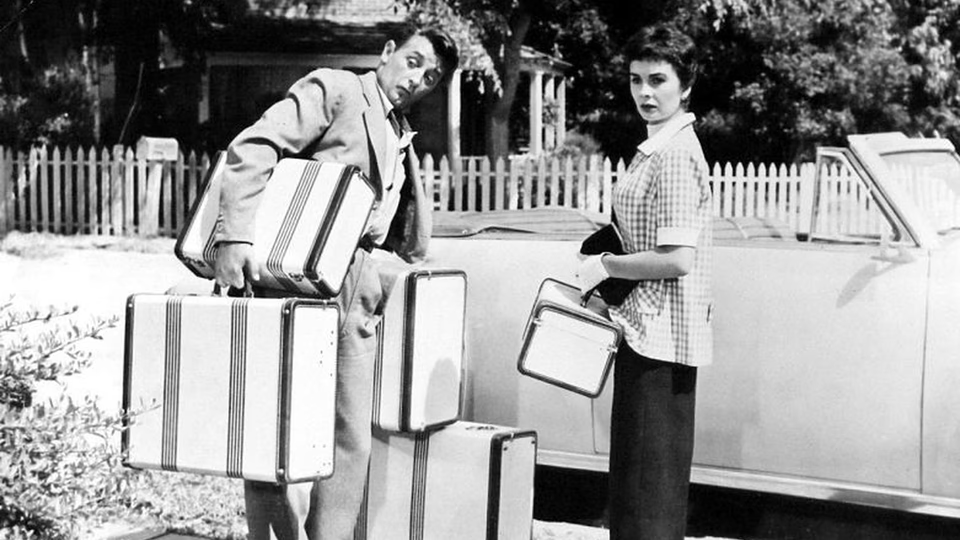She Couldn't Say No

Had it dared to be as provocative as its title, She Couldn’t Say No might have been something special. As is, it’s not a bad film, but it is something of a let-down.
The story follows an oil heiress named Corby Lane, played by Jean Simmons. Corby travels to the small town of Progress in rural Arkansas. Once there, she begins anonymously doling out large sums of money to the townsfolk.
She also takes an interest in Doc Sellers, played by Robert Mitchum. Doc susses out Corby’s motivations, and tries to dissuade her. But Corby is stubborn. Her generosity backfires. Flush with cash, the town vet pulls up stakes, leaving the local farmers in a lurch. So does the owner of the boarding house where Corby’s been staying. The town drunk, played by the always charming Arthur Hunnicutt, almost dies of alcohol poisoning.
As the town descends into chaos, Corby realizes the error of her ways. She comes clean as the town’s beneficiary and says there’ll be no more money. Corby and Doc get together and we’re led to believe the town is more-or-less back to normal. Of course, we know that can’t be true, but this is part of how the film lets us down.
It’s a film built on a solid premise with a good cast. But the script has no edge. It plays like a bucolic romantic comedy. Nothing serious happens until the end, when masses of people show up at the general store. They’re all from out of town, hoping to register a local address to get a piece of the pie. The crowd swells. Tempers run short. Someone has a gun. Things start to turn ugly, but Doc arrives in time to settle things down with a hearty speech.
But what if he didn’t? What if the film started as a comedy but then subverted the genre to show the underside of small town life? A biting satire that really explored the effects of sudden wealth on rural America. It might be wrong to criticize the film based on what wasn’t made, but storytelling is about making decisions. And a decision not to do something is still a decision.